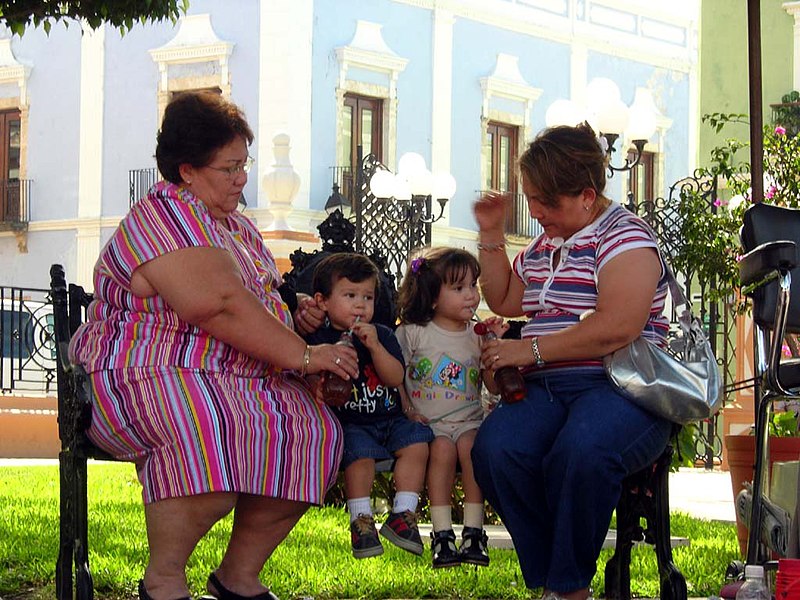News
Experts Want Obese Kids, Teens To Undergo Intensive Behavioral Counseling

Two young children sit between two women on a park bench in Campeche City, Mexico. The children are drinking beverages through straws that they hold. The children are looking away from the beverage containers, which the women are holding for them. | (Photo : Gideon/Wikimedia Commons)
America faces an escalating crisis with childhood obesity, a condition that now affects nearly 20% of the nation's young population. As rates of obesity soar, particularly among children and adolescents, the health consequences have become increasingly dire, prompting experts to make a call for intervention.
Responding to the alarming trend, the U.S. Preventive Services Task Force (USPSTF) has issued a decisive recommendation: children and teens aged 6 and older with high body mass index (BMI) should undergo at least 26 hours of intensive behavioral counseling.
The USPSTF is a voluntary, independent group of national experts specializing in disease prevention and evidence-based medicine. Its mission is to enhance public health across the country by issuing recommendations grounded in scientific research for preventive clinical services.
The agency's directive, published in the latest issue of JAMA, advocates for comprehensive interventions to tackle the burgeoning problem of obesity in America's youth.
Dr. Brett Osborn, a neurologist and longevity expert not involved with the task force, said there is an urgency to have this guideline, framing it as more than a mere suggestion, saying, "This recommendation is not just a guideline; it's a call to action. Early recognition and intervention are critical to curbing a potential lifetime of health problems."
The USPSTF's review reveals moderate certainty that intensive behavioral interventions offer a significant net benefit for young people with a BMI in the 95th percentile or higher. These interventions include structured physical activity, nutritional education, and behavior modification techniques designed to foster healthier lifestyle habits. The task force stresses that healthcare providers should either administer these programs or refer patients to appropriate specialists.
According to CDC data, about 19.7% of U.S. children and adolescents are classified as obese, with higher rates observed among Hispanic/Latino, Native American/Alaska Native, and non-Hispanic Black youths. Children from lower-income backgrounds are also disproportionately affected, highlighting the complexity of the obesity epidemic.
Dr. Osborn underscored the importance of integrating medication with behavioral changes when necessary. He noted that drugs like GLP-1 agonists can provide a crucial boost when behavioral interventions alone fall short. "These medications can be particularly beneficial when behavioral interventions alone do not suffice, helping adolescents gain the momentum needed to adopt and maintain healthier lifestyles," he said, per Fox News.
Labeling obesity as a "gateway disease," Dr. Osborn drew attention to its links with severe health conditions such as type 2 diabetes, hypertension, and heart disease. His comments reflect a growing consensus in the medical community that addressing childhood obesity is essential to prevent a cascade of future health complications.
The USPSTF's recommendation signals a critical shift towards proactive health management for children, aiming to alleviate the long-term burden of obesity and its associated chronic diseases. By promoting intensive behavioral counseling, the task force hopes to pave the way for a healthier future for America's youth.









Join the Conversation